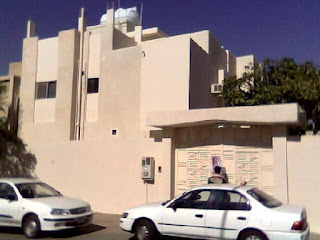A common feature of Islamic art is the covering of surfaces with geometric patterns. This use of geometry is thought to reflect the language of the universe and help the believer to reflect on life and the greatness of creation. Among the most important aspects of Islamic geometric design are repetition and variation. A series of tiles, for example, may consist of only one or two shapes but the patterns of the tiles may all be different. In other designs, a few different shapes may be combined to create a complex interlocking pattern. Geometry is seen to be spiritual because circles have no end, they are infinite and so they remind Muslims that Allah is infinite. Complex geometric designs create the impression of unending repetition, and this also helps a person get an idea of the infinite nature of Allah. The repeating patterns also demonstrate that in the small you can find the infinite, a single element of the pattern implies the infinite total.
Another way of looking at this is that there is no central point. The information at work that we recieve tends to come in bits and pieces, from multiple and simultaneous sources; the result being a lack of overall perspective. The information comes in waves, tends to vary slightly with each iteration, and thus the overall impression is one of "wait and see" until the final version is presented. Once one is able to pull back, perhaps at a higher vantage point within the bureacracy, one might see and appreciate the whole?
To go beyond such banal observations, an interesting point of departure is the potential link between deism and Islam. For example:
“To see a world in a grain of sand,
And a heaven in a wild flower,
Hold infinity in the palm of your hand,
And eternity in an hour. - William Blake, "Auguries of Innocence"
Medieval Christianity also associated geometry and repeated patterns of natural complexity as an apologetic for the existence of God. Blake here is representing a grain of sand as a microcosm of the natural universe, that if one looks closely enough, one can witness the power and architectural prefection of God's handiwork. The cosmological conceptions of the natural world, in a geometric great chain of being, is depicted below by Dante, in the mid 13th century, and Paine in the 10th.
By the 16th and 17th centuries, deism had taken hold as a fashionable academic trend, espoused and defended by such greats as Isaac Newton:
The physical world, according to Newton, was explicable in terms of “insurmountable and uniform natural laws” that could be discovered by observation and formulated mathematically. By mastering these laws human reason could explain cosmic events that had previously been ascribed to divine intervention. The beauty and variety of the system, Newton believed, was irrefutable evidence that it had been designed and produced by an intelligent and powerful Creator. Close though he was to deism, Newton differed from the strict deists insofar as he invoked God as a special physical cause to keep the planets in stable orbits. He believed in biblical prophecies, but rejected the doctrines of the Trinity and Incarnation as irrational.
It is interesting to see here the parallels: Islam considers the idea of the Trinity and Incarnation as blasphemy; Newtonian deism considers it as irrational. Islam sees in geometry as approaching the perfection of God's nature, and this idea also spurred the deistic philosophy. I have not come across a thorough academic treatment of the topic (although I have not read the book this link is an excerpt of), but given Islam's historic emergence in the 5th and 6th centures and academic flowering several centuries later, is it conceivable that deism was directly and naturally influenced by Islamic ideals by the time of the middle ages?











